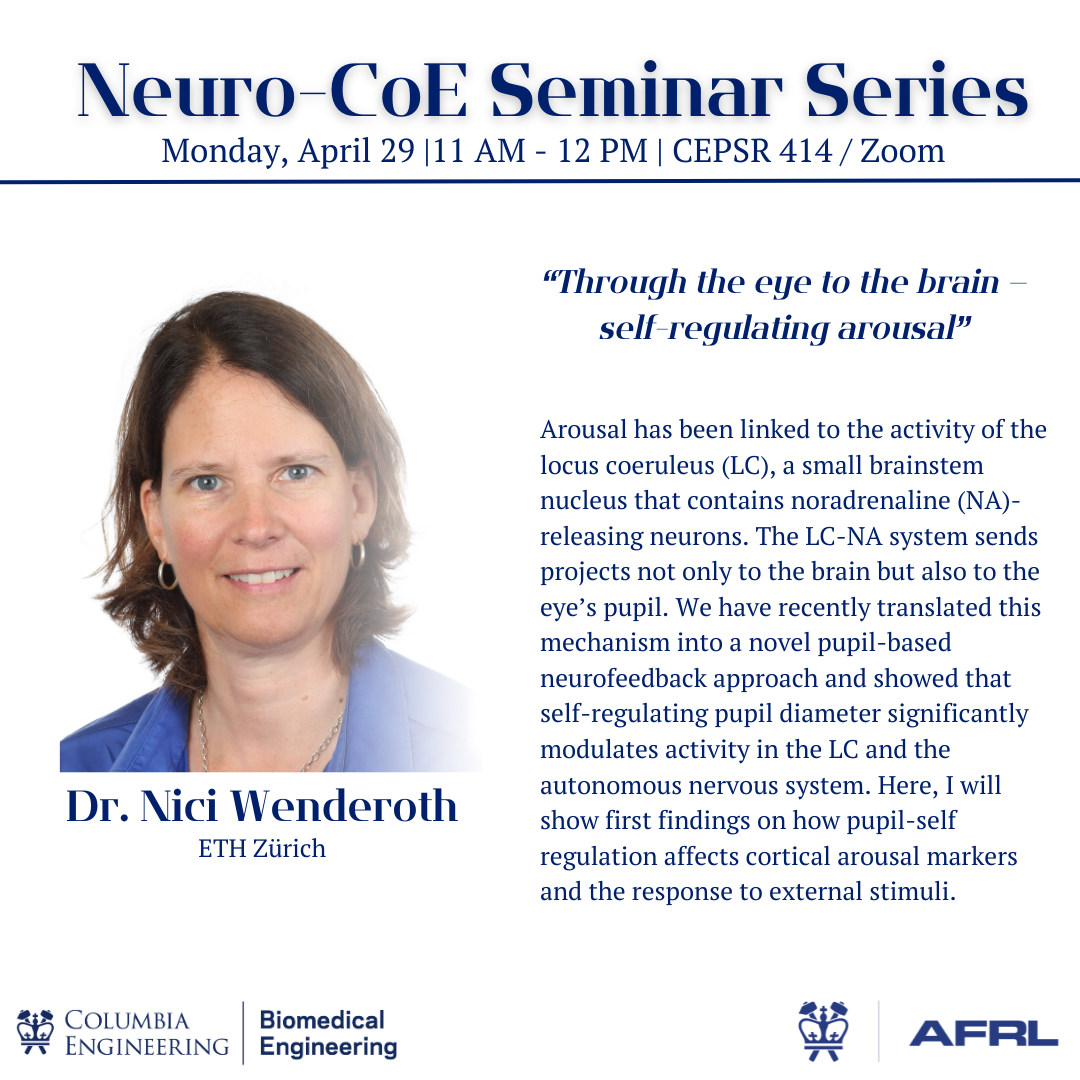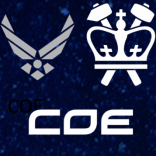Neuro-CoE Seminar Series

Lecture Abstract
Arousal has been linked to the activity of the locus coeruleus (LC), a small brainstem nucleus that contains noradrenaline (NA)-releasing neurons. The LC-NA system sends projects not only to the brain but also to the eye’s pupil. We have recently translated this mechanism into a novel pupil-based neurofeedback approach and showed that self-regulating pupil diameter significantly modulates activity in the LC and the autonomous nervous system. Here, I will show first findings on how pupil-self regulation affects cortical arousal markers and the response to external stimuli.
About the Speaker
Professor Nici Wenderoth is a full professor for Neural Control of Movement in the Department for Health Sciences and Technology at ETH Zurich, Switzerland (https://ncm.hest.ethz.ch/). She works in human systems neuroscience and her main focus is on developing new, non-invasive approaches for neuromodulation. She is the Vice-Director for Research at the Singapore-ETH Campus and the Director of the Future Health Technologies research programme in Singapore (https://fht.ethz.ch/). She is a cofounder of the ETH Spin-Off MindMetrix (https://myflow.ch).
The Columbia/AFRL Center of Excellence on the Neuroscience of Decision Making (Neuro-COE) represents a multidisciplinary, multimodal, and multiscale effort for elucidating the neural mechanisms of decision-making, especially under stress, time pressure, and fatigue. It represents a collaboration between biomedical engineers, neuroscientists, computer scientists and psychologists, both at Columbia University and the Air Force Research Laboratory. Join the Directors Paul Sajda and Qi Wang as we hear from experts in the field and learn from their insights.
Webinar Registration

Learn about the Air Force Center of Excellence in the Neuroscience of Decision-Making
